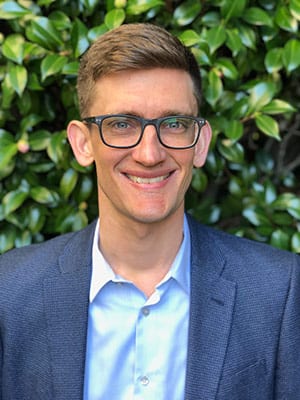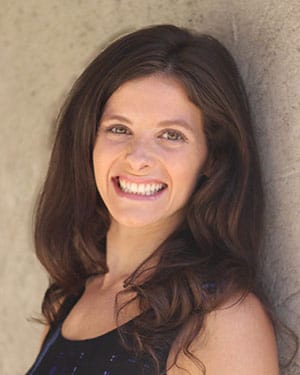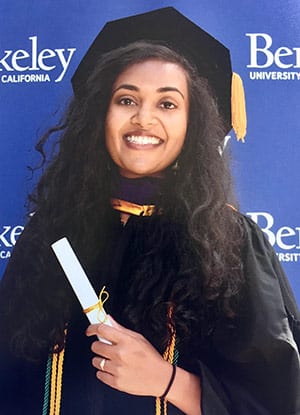By Andrew Cohen
When it comes to judicial clerkships, Berkeley Law is in the myth-busting business.
Last year, amid jarring national data about the lack of ethnic-minority clerks, 11 African-American students and alums landed coveted federal clerkships. This year, with a record-setting performance by the Class of 2018, the school has shown that the opportunity to clerk is truly available for all students—not just those headed to big firms.

Thus far, 43 percent of this year’s graduates who obtained clerkships worked last summer for a public interest organization, government agency, or public interest-oriented firm. This counters a common belief that an offer from a top firm and law review experience hold the clerkship keys.
“Many judges like to hire clerks who are grounded in real-world experience, and who understand the power of the law to promote justice and equality,” says Clinical Law Professor Ty Alper. “They aren’t only looking for students with the best grades; they’re looking for students who are well-rounded.”
Alper adds that many judges “prefer students who have spent time before law school, or in their law school summers, working in the public interest. After all, the judges are engaged in public service themselves and many of them are increasingly drawn to clerkship applicants who share that commitment.”
To date, 64 members of this year’s graduating class have secured clerkships, 11 more than last year. That includes 54 for the upcoming term—breaking the school record of same-term clerkships (50) set in 2016. More than 80 percent of the placements are at the federal court level.
Ten of these graduates have already received a second clerkship offer for a future term, and this year’s class will clerk in 26 states—another Berkeley Law record. In all, 98 alums will clerk in 32 states during the upcoming term.
Strong internal support
In recent years, faculty members and the school’s Career Development Office (CDO) have ramped up efforts to expand the number of students seeking clerkships. That involves fostering a network of alumni former clerks who offer valuable advice and insights.
The roster includes Galen Ages ’16, an attorney for Legal Aid at Work. Ages, who provides free legal services to clients at Workers’ Rights Clinic sites across California, clerked for Judge Haywood Gilliam, Jr. (U.S. District Court, Northern District of California).

“Today, as a public interest attorney, I regularly draw upon the skills that I developed as Judge Gilliam’s clerk,” Ages says. “I’m deeply grateful for this experience, and want to do everything I can to assist Berkeley Law students who seek to serve in the federal judiciary.”
Many of those who will clerk in the coming term engaged in public interest projects at the East Bay Community Law Center (EBCLC). With eight different clinical programs ranging from immigration to housing rights to consumer justice, students gained experience in direct services, litigation, organizing, and policy advocacy.
“The training that law students derive at EBCLC not only prepares them for clerkships, but sets them up to thrive in those clerkships,” says Seema Patel, the center’s clinical director. “Nobody can deny that both the bench and the bar are taking stock of this. Over a decade ago, clinical work might have landed students a clerkship in more ‘liberal’ chambers; today, judges better see and appreciate that clinical work is deeply valuable no matter their political leanings.”
Marina Henri ’18, who won the law school’s Eleanor Swift Award for Public Service, found many reasons for pursuing a clerkship.
“I knew I’d likely get more writing training than had I gone directly into practice,” says Henri, who will clerk for New Mexico federal district court Judge Martha Vazquez. “I also really wanted to get experience behind the scenes of the courtroom before going into litigation.”
Shattering preconceptions

Nisha Giridhar ’18 came to law school believing that clerkships were exclusively for students entering the private sector. She credits faculty mentors such as Professors Karen Tani and Saira Mohamed for highlighting how clerking would serve her career goals in direct advocacy and client services.
Giridhar, who will clerk for U.S. District Court Judge Leslie Abrams (Middle District of Georgia), also credits CDO staff members such as Eric Stern for supplying guidance. “Eric organized events, met with me individually numerous times, put me in touch with former clerks, and provided input and advice on how to prepare for interviews,” she says.
Henri echoes that sentiment. “Our CDO and alumni network are incredible,” she says, noting that the grads she was referred to “were always happy to speak to me.”
Among their many involvements during law school, Giridhar and Henri co-led the Post-Conviction Advocacy Project, which helps area prisoners prepare for their parole hearings and life after release. Giridhar also co-chaired the school’s Queer Caucus and worked with its Women of Color Collective and Berkeley Journal of International Law, while Henri was co-editor-in-chief of the Berkeley Journal of Criminal Law and mentorship co-chair of First Generational Professionals.
For Giridhar, infusing judicial chambers with more public interest-oriented clerks “adds necessary diversity in perspective among judges’ chambers.”
Henri agrees. “I don’t think big-firm students are considered more qualified for the positions, but rather they’re more likely to apply because of the prestige and bonuses that often come with doing a clerkship,” she says. “Clerking is a public interest position, and many judges would agree that clerks are serving their community.”